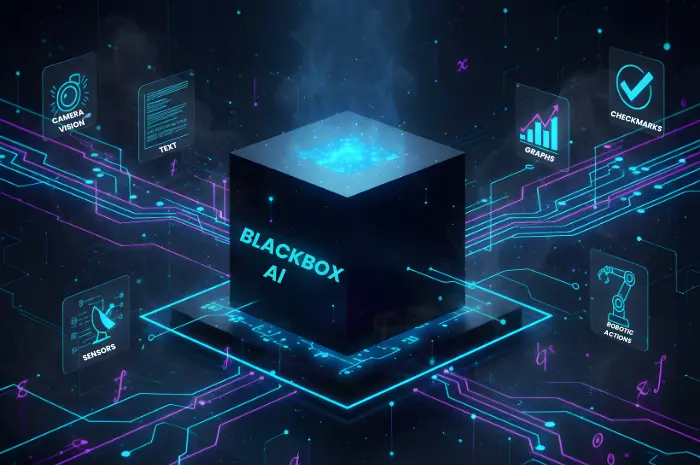If you are a project manager in the IT world, you know how tricky it can be to keep everything running smoothly. Deadlines move, team members get overloaded, and client requests seem to change all the time. Planning timelines and budgets often feels like guesswork, especially when surprises pop up mid-project. Figuring out who should do what, and when, isn’t always clear, and communication across teams can quickly break down. Then, there’s the never-ending list of new tasks that get added along the way, making it hard to stay on track.
Can AI agents handle project management? As artificial intelligence evolves from a supportive tool to an autonomous agent, it’s time to explore what that means for PMs today.
How AI is Shaping Modern Project Management
Artificial intelligence is already solving many pain points in the IT industry, from code generation to predictive maintenance. But project management isn’t just a series of tasks- it’s a blend of planning, coordination, judgment, and leadership. AI agents today are highly capable, but are they ready to lead projects from start to finish? Let’s examine where they shine, where they fall short, and how close we are to seeing autonomous AI-driven project management.
1. Creating Smarter, More Flexible Schedules
AI agents can create project schedules based on past data, team workload, and task dependencies. Using predictive power, they can flag potential delays by observing subtle signals like slow approvals or overloaded resources.
2. Distributing Workload Fairly and Efficiently
Instead of assigning work based on static roles, AI agents look at your team’s current workload, strengths, and speed. They automatically suggest (or assign) tasks in a way that balances efficiency and fairness. The result? Less burnout, fewer bottlenecks, and more momentum. It’s like having a real-time traffic controller for your team’s to-do list.
3. Spotting Risks Before They Derail the Project
AI doesn’t wait for you to notice issues. Tools like Wrike or Forecast monitor project activity to spot early warning signs—a delay, a stalled task, or missed dependencies. Then, they suggest fixing it before it becomes a full-blown problem. This kind of proactive risk management helps teams stay one step ahead.
4. Helping with Smarter Budget Decisions
AI doesn’t just track spending; it correlates cost trends with scope changes, timeline shifts, and vendor behavior. Some AI tools for project management can even simulate how financial changes impact project delivery, helping in making data-backed budget tradeoffs.
5. Managing Multiple Projects Without Getting Overwhelmed

When juggling several projects at once, it’s easy to lose sight of the big picture. AI organizes initiatives based on priority, resource needs, and risk. It groups related tasks and highlights where attention is needed, giving senior managers and PMOs a clear view across the entire portfolio.
6. Surfacing the Right Insights at the Right Time
Every project generates loads of data, but AI agents help you see what’s worth acting on. Maybe tasks are slowing down every Wednesday, or a particular stakeholder is involved in most delayed reviews. AI surfaces these patterns and points them out clearly so project managers can dig into the “why” and make smarter calls.
7. Identifying When Scope Creep is Creeping In
If new tasks or changes not part of the original agreement start piling up, the AI project manager flags it as potential scope creep. That early heads-up allows project managers to clarify expectations with clients and prevent delivery delays or cost overruns.
8. Improving Communication Through Smart Summaries
AI is surprisingly good at cutting through the noise. Using natural language processing, it can extract key points from meeting notes, summarize long email threads, or highlight tone changes in team communication. Best project management tools like Hive and Slack bots keep your updates aligned and your stakeholders informed—without the project manager needing to type out every recap manually.
9. Running Simulations to Predict Project Outcomes
Ever wondered what would happen if you added two developers to a sprint or pushed a milestone by a week? AI agents can simulate those scenarios and provide real-time feedback based on past data and current progress. This helps project managers make confident decisions backed by insights, not guesses.
AI Tools That Bring You Closer to Agent-Led Project Management
These project management AI tools aren’t fully autonomous agents yet, but they are increasingly handling tasks that used to require manual decision-making:
.webp)
Do You Need to Train AI Agents to Use Them?
Not exactly. Most of today’s AI tools for project management come pre-built with machine learning models that adapt over time without custom training. However:
- No-Code Tools: ClickUp, Trello, and Monday offer automation without requiring technical skills.
- Data-Fueled Intelligence: Best project management tools like Forecast improve with more data (e.g., task durations, budget trends).
- Continuous Learning: These platforms get smarter with usage—resulting in better estimates and recommendations.
- Custom AI Agents: Enterprises can build tailored AI agents using models like GPT, though this requires developer or data science support.
- Integration Setup: Linking these AI agents with tools like Jira or Salesforce may need API work and team alignment.
Custom AI Agents for Project Management
Off-the-shelf project management software are great for most teams, but what if your project workflows are highly specialized—or your data resides in complex internal systems? This is where custom-built AI agents come in.
With advancements in large language models (like OpenAI’s GPT), businesses can now develop AI agents for project management trained specifically on their internal data, tools, and PMO practices. These agents can analyze historical project data, understand domain-specific terminology, and interact with multiple platforms (e.g., Jira, Confluence, CRMs) through APIs.
Capabilities of Custom AI Project Manager

- Interpret Project Requirements from Documents or Chats
A custom AI agent can scan emails, project briefs, meeting notes, or Slack messages to extract key requirements and build structured task lists.
Example: It can turn a client onboarding doc into a sprint backlog or flag ambiguous deliverables before planning begins.
- Assign Tasks Dynamically Based on Team Skillsets and Availability
Your AI agent can learn who’s good at what, check everyone’s workload in real time, and assign the right person to each task, even as timelines shift.
Example: Instead of a manager manually delegating, the agent could auto-assign a QA task to the tester with the lightest load and relevant experience.
- Summarize Stakeholder Feedback and Flag Misalignment
The AI can read through feedback emails, comments, or transcripts to surface contradictions or misalignments between teams and clients.
Example: If engineering and marketing interpret a feature conflictingly, the agent can alert the PM before a wrong version is built.
- Predict Outcomes of Project Decisions with Simulations
Custom AI agents can model “what-if” scenarios using your historical project data, letting you see how changes might affect delivery.
Example: “What happens if we cut sprint 6 from the timeline?” The AI agent can anticipate the risk of making this change and its cost impact.
- Serve as a 24/7 Project Assistant in Slack or Teams
Your agent can live inside collaboration platforms, providing real-time updates, answering team questions, or reminding members about blockers- day or night.
Example: A teammate types, “@AI, what’s delayed in Phase 2?” The agent quickly gives a summary and even suggests what to do next.
Can AI Replace Project Managers?
Not quite, and likely not anytime soon. While AI agents are becoming impressively capable of managing schedules, distributing tasks, flagging risks, and even simulating outcomes, they still fall short in areas that require human judgment, emotional intelligence, and strategic thinking.
So, AI agents for project management are nothing more than intelligent co-pilots. They take the grunt work off your plate, surface smarter insights, and help you make better decisions faster. However, the role of a project manager, especially in the IT world, still requires a blend of leadership, empathy, and adaptability that only people bring to the table.
In short, AI won’t replace project managers, but it will replace project managers who don’t use AI project management software. But who knows, in the future, the agents who are assisting today might just take the lead.






